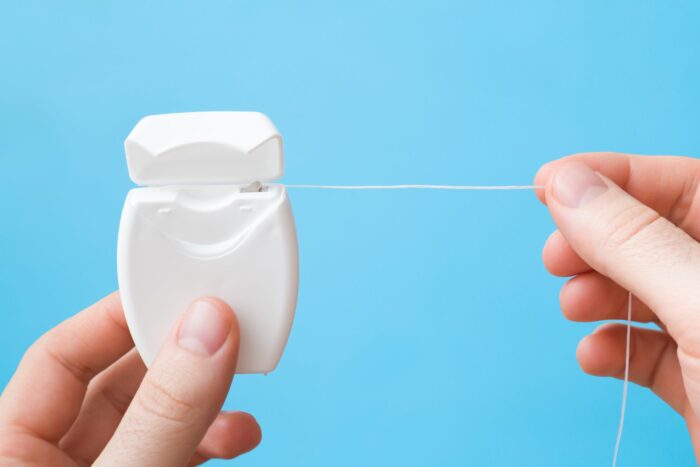Some people may skip flossing daily because they do not think it’s as important as brushing their teeth. However, we recommend that patients floss daily to keep their teeth and gums healthy. Flossing can remove plaque and tartar from the mouth. Plaque is a film of bacteria that can build up and harden over time to form calculus or tartar. If you brush and floss but are unsure what type of floss is right for you, learn more about flossing from our office in Arlington Heights, IL. Flossing is an important part of an oral hygiene routine that many patients may overlook. We want our patients to care for their smiles when they are not in our office to maintain the results that we provide in-office.

Choosing the Right Floss
If you have a dental restoration, crooked teeth, or gaps between teeth, different floss can help you get a better clean. The effectiveness of the floss depends on its material and thickness as well as your particular needs. If there are no gaps between your teeth or your teeth are close together, you may want to use thin floss. Thicker floss is best if you have larger gaps between teeth. Wide floss or dental tape is more likely to give you a better clean.
Floss picks and water flossers are options if you can not use traditional dental floss. A floss pick is a plastic tool that holds a piece of dental floss. We typically recommend floss picks if patients have mobility issues. Water flossers use water pressure to clean bacterial buildup between teeth. Additionally, water flossers can be helpful for patients with crowns, bridges, or dentures. While patients with restorations can use traditional floss, water flossers can help patients with mobility issues and restorations.
Regular Dental Care and Flossing
Scheduling routine dental cleanings and sticking to a good oral hygiene routine can maintain the appearance and health of the smile. Flossing once a day can also help prevent future problems like gum disease and cavities. Harmful bacteria can cause these common dental problems. Bacteria can irritate the gum tissue and cause gum disease as it builds between teeth and on the gums. Harmful bacteria can also cause tooth decay and cavities. Cavities are holes in the enamel created by digestive acids that eat away at teeth. As bacteria feed on starches and sugars left in the mouth, they create cavities.
At regular routine visits, our hygienists use special stainless steel dental tools to remove bacteria from the teeth and gums. Our hygienists can remove plaque and tartar from the mouth and minimize harmful bacteria. Although patients need good bacteria for a healthy smile, harmful bacteria can build up and cause damage and pain. Flossing, brushing, and visiting the dentist twice a year for cleanings can minimize the chance of developing tooth decay or gum disease.
Has it been a while since your last dental appointment? Call AH Smiles today at (847) 230-9703 or request a dental appointment with Dr. Brent Engelberg online.
